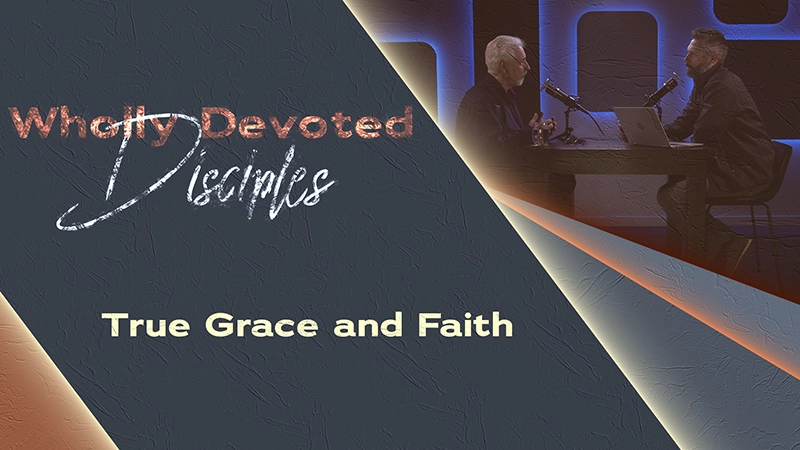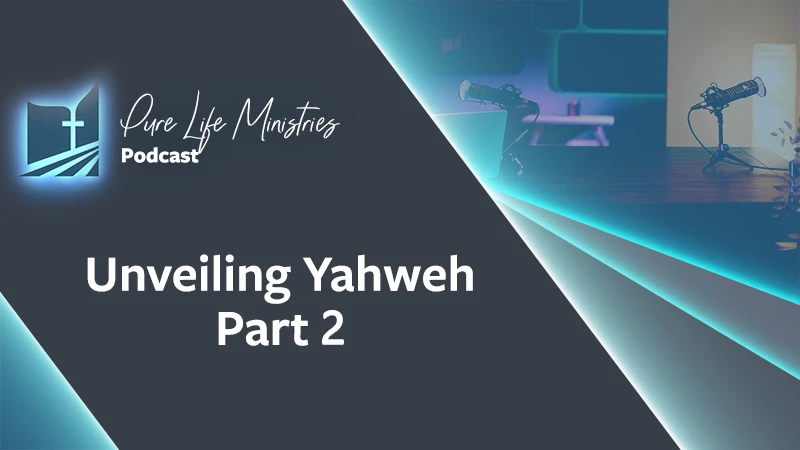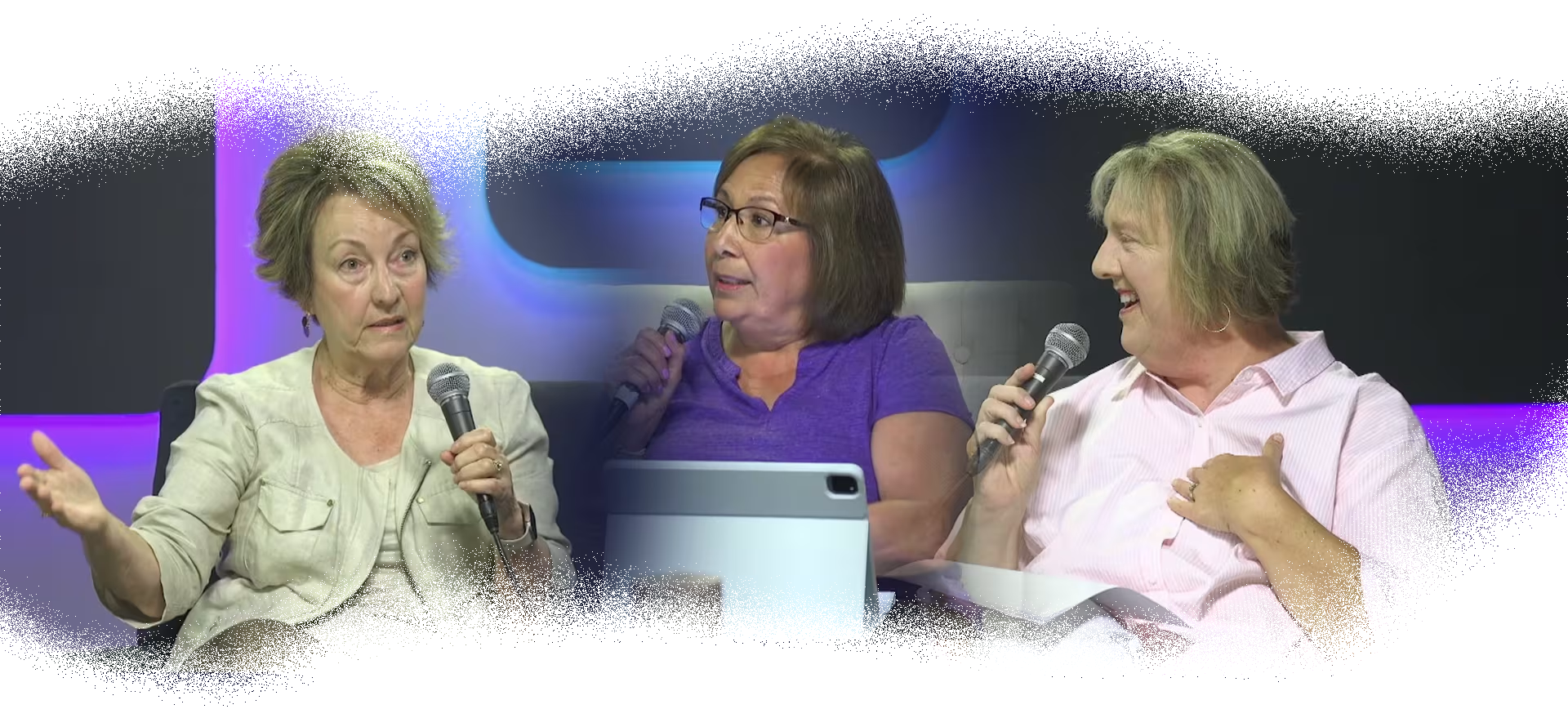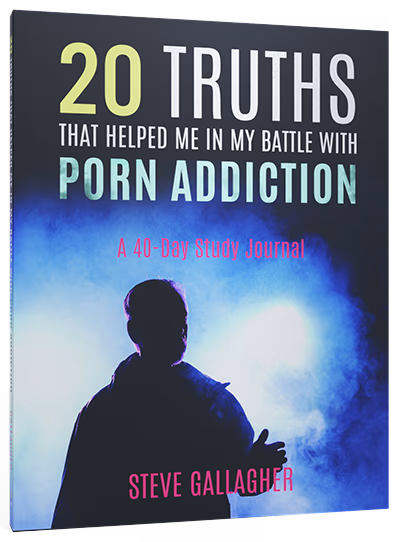
Delivered from Destruction by Heavenly Wisdom
Proverbs 28:26 in the NKJV says, "He who trusts in his own heart is a fool, but whoever walks wisely will be delivered." In this interview, Nate sits down with Ed Buch to unpack this verse and how applying it to our lives can save us from having to learn the hard way from our mistakes. (from Purity for Life Episode #498 - Babylon: An Empire Aimed at Conquest)
Nate: OK. So, Pastor Ed. This is the second segment in a show where we are looking at how the enemy has infiltrated this world and how he is working to create a global mindset where he is fully in control of people's hearts and minds. And the thing I wanted to key in on in this interview was part of how he does that. Pastor Steve has said that many people spend their whole lives pursuing what brings them the most pleasure, and that they think they are in full control of their lives. But they don’t realize that they are being led by the hand to their destruction by the spirit of Babylon. And the reason that I wanted to key in on that is because if there is anything that defines American culture, it is the pursuit of pleasure. And so, what Pastor Steve is saying is that we can think that we're in full control because we're pursuing what pleases us. But in reality, we are being controlled by the spirit of the world and we're being led to destruction. What I’d like you to do for us is give some Scriptural support for that idea?
{{blog-bbaby="/blog-ads-storage"}}
Ed: Unfortunately, Nate, I think most of us find out the truth of what Pastor Steve is saying the hard way. One of the things we always must keep in mind about lust is that it is never satisfied. All of us have something that we're allured by and attracted to in the pleasure realm that's different for each person. We all have our little individual preferences and tastes, but there's something that we're pulled toward and most of us eventually find a way to experience it. Those things are not all necessarily even sinful, but many of them can really delve into sin very quickly for us.
But the thing is that over time, the pleasure we're getting out of that experience fades. What once brought us a real thrill of pleasure now leaves us dissatisfied and craving for more and at a place where we internally feel like we have a need for this thing. And sometimes at that point, we'll go after a more powerful version of the thing that we've been pursuing or we'll seek out another form of pleasure altogether that is more powerful to us. But regardless, we're following our desire for pleasure and that self-centered pursuit of pleasure is leading us down a path. In 1 John 5:19 it says that the whole world lies under the sway of the evil one. Or as the NIV puts it, under the control of the evil one. So, when we're naively pursuing that worldly pleasure, we're actually immersing ourselves in that domain where evil prevails and in that domain our control is nothing more than an illusion.
This is exactly what Paul was talking about in Romans 6 where he says that we are slaves to the one we present ourselves to. Whether that's sin leading to death or obedience leading to righteousness. We're all enslaved. We have a choice to make, but we'll be a slave to one or the other. So, whether we realize it or not, our pursuit of pleasure is increasingly enslaving us to sin and handing control over to the evil one in our life. And many of us end up enslaved to various forms of pleasure, sexual pleasure of course being predominant in our culture and in our ministry here. But here's the sad part of this Nate, even after whatever we’re chasing no longer gives us the pleasure we are seeking from it, we will continue to be driven by a desire for it. That is the place of misery and destruction that the evil one had in mind from the beginning.
Nate: Yeah. The thing that you said, or inferred I think is that as humans we're really never in control. The only control we have is who to give control to. Do we give it to Satan, or do we give it to God? Do we give it to righteousness or do we give it to sin? And that's the only choice we have. We don't have the choice of remaining in control of our own destination. We don't have the option of remaining in control of how our lives will turn out. So, it's very clear to me where we can be very self-deceived. We may think that we can make a decision and control the outcome, but that's not an option.
Ed: Not really. Once you make the choice of which path you’re taking, then the destination is settled for you.
Nate: Yeah. And let's bring in a Scripture here. The first part of Proverbs 28:26 says, “Whoever trusts his own heart is a fool.” How do you see a Scripture like that playing into this conversation?
Ed: Well, from a Biblical perspective, the heart that it's talking about is the seat of our desires. And of course, I think most of us would understand that we're born with a sin nature, which means all of those innate desires have been corrupted in some measure. So, I find myself literally cringing when I hear people say things like, “just follow your heart.” That is literally the exact opposite of what the Proverb says. You have a lot of movies, even Christian movies, that seem to really push this notion of following our hearts. But when it comes to what the Scriptures have to say about the heart, it's a scary reality in a sense. The heart is deceitful above all things and desperately wicked. If you really consider what it's saying, would you follow your heart? Would you willingly follow something that is deceitful above all things? Everything else is less deceitful than your own heart. Is that the path you are going to choose? And Jesus Himself said in Mark 7 that out of the heart proceed evil thoughts, adulteries, fornication, murders, thefts, covetousness, wickedness, deceit, lewdness, an evil eye, blasphemy, pride and foolishness.
That whole list of stuff comes out of someone's heart. So, I think that it's very clear in Scripture that the heart is the seat of our corruption. It's full of corrupt desires and it's easily swayed by untrustworthy emotions as well. So, Scripture really has a dual thing that it teaches us against following our hearts. And I think you could even say that every sin a person ever commits started in their heart. So, if we follow our hearts, we're just literally playing right into Satan's hands. We're doing exactly what he wants us to do. And we're a fool like that Proverb said because we have been warned over and over in Scripture not to do that.
Nate: Yeah. And I think that if anybody would just take an honest look and survey their past, they will see that we all naturally trust our hearts. We don't have to be told to trust our hearts. We don't have to be encouraged to do it. We just do it.
Ed: We want to be deceived I think is part of what's going on there because we really just want what we want. Deceiving ourselves in order to go after what we want is something that us as fallen human beings are willing to do.
Nate: Yea. So, then the other half of Proverbs 28:26 says, “He who walks in wisdom will be delivered.” We obviously really need this because like you said, in so many situations in our lives the only thing that really seems to get through to us is the pain of our horrible decisions. Who really wants to spend the rest of their lives only learning from complete disaster and failure. So the solution to avoiding that is to grow in wisdom. What is wisdom?
Ed: Well, I saw you were going to ask me that question today, so I took the liberty of looking it up on the dictionary app on my phone. And one of the definitions that it gave me was “Scholarly knowledge or learning.” That's what we might call human wisdom and the Bible does use the word wisdom that way a couple of times. For example, in Acts 7:22 it says Moses was learned in all the wisdom of the Egyptians and was mighty in words and deed. That kind of human wisdom is occasionally being referenced, but it's usually pretty clear by the context that it's not the same as godly wisdom. I think of it as wisdom with a small “w”. Now contrast that with the godly attribute of Wisdom that you might think of as Wisdom with a capital “W”.
So, one of the other definitions really gets more at the godly attribute of Wisdom. It says that Wisdom is the knowledge of what is true or right coupled with the just judgment as to action. Now that's a mouthful. But in simple terms, it's knowing what's true and right, and then acting according to that. And I think that's a lot closer to what the Bible has in mind when it speaks of Wisdom. I'll throw another definition in here as well. Years ago, I ran across another definition of wisdom from a ministry website and I jotted it down. It said that Wisdom is seeing and responding to life's situations from God's frame of reference. I think that is a very practical and helpful definition of Wisdom.
Nate: Yeah, that is definitely what we need because like you said, Wisdom is the knowledge of what is right and true coupled with just judgment about the action. And sometimes we don't see the situation at all for what it really is. Sometimes we do see the situation for what it is, but we don't act in a way that is going to get us through. It's like the verse that says, “The prudent sees danger and hides himself, but the simple go on and suffer for it.” (Proverbs 22:3, ESV) We do that a lot. Our desires are really deceptive and they're really powerful. Another verse that I thought about that shows us our total need of the Lord even in this whole realm of learning to walk in Wisdom is that Wisdom begins with the fear of the Lord. Why is that?
Ed: Well, first of all, I think most Christians can probably quote that part of the verse by heart from Proverbs. But I find that most people don't have much of an understanding of what the fear of the Lord really is or even a sense of their true need for fearing the Lord. The way I see it, a healthy fear of the Lord is rooted in His role as judge. The Bible of course teaches us that everyone is going to be judged one day. It's right there in 2 Corinthians 5:10. It says, “For we must all appear before the judgment seat of Christ, that each one may receive the things done in the body, according to what he has done, whether good or bad.” (2 Cor 5:10, NKJV) We're all going to appear before that judgment seat and Jesus told us that we shouldn't fear those who can only kill the body but can't do anything to our soul. He says, “rather fear Him who is able to destroy both soul and body in Hell.” Of course, the latter is referring to God. We should fear the Lord.
So, Wisdom is simply living in the reality that my eternity is much more important than my present. I'm going to be judged and there's going to be an eternity that follows that judgment that is either going to be very good or very bad for me. When I live with that kind of perspective ever in front of me, then I'm living by Wisdom. So, that includes denying myself worldly pleasures right now and taking every thought captive. That means storing up my treasure in heaven instead of on the earth and focusing on my spiritual growth. That means developing the mind of Christ and prioritizing my relationship with my Heavenly Father. Those are all the things that result when someone's living according to Wisdom in their life. And if I live today with the intent of being in the right place spiritually, when I get to that place of judgment before Christ then I've allowed my healthy fear of the Lord to steer me down the right path of Wisdom. I won't be living in sin with the fear of being punished, but rather I'll be living in obedience with the expectation of receiving the reward that comes for that.

















